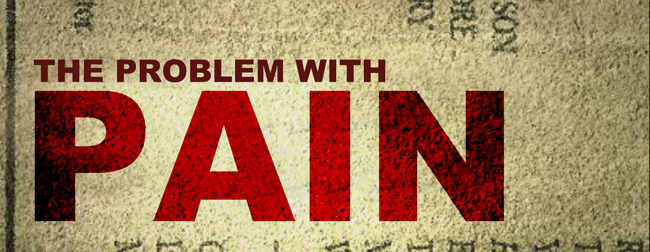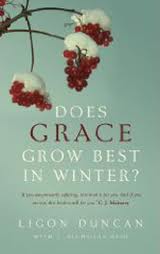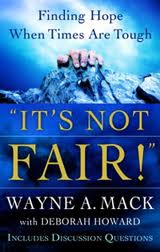Get Over Getting Even
The remarkable story of Joseph and his forgiveness is the foreshadowing of Christ and His forgiveness. It reveals to us the very nature of forgiving the deepest offenses. This type of forgiveness is supernatural and requires the greatest application of gospel truth. The test of a person’s character is their ability to forgive. Here are five questions designed to stimulate our thinking on the subject of forgiving.
1. Do you believe you could forgive the way Joseph forgave his brothers? Keep in mind the depth of pain his brothers inflicted on him: the pit of injustice where he was left to die, Potipher’s house where he was falsely accused, the prison where he was forgotten.
2. Are you having trouble letting go of hurts far less severe than Joseph’s? Why such an account of this man’s story if not to encourage us in our own journey of being misunderstood?
3. Do you believe God’s grace is sufficient? The apostle Paul says that it is when he addresses this issue in 2 Corinthians 12 with these words, which are from Christ himself: “My grace is sufficient for you, for My strength is made perfect in weakness.”
4. Are you rejecting His grace? We are reminded by the writer of Hebrews not to reject God’s grace lest a root of bitterness springs up and defiles many.
5. Are you a conduit of the very grace that saved you? Can you get over getting even with the father who never said “I love you”? What about the coach that played favorites or the boss that gave the promotion to the wrong person?
The problem with getting even is that it hurts us more than the one we wish to get back at. It shows that we do not believe that vengeance belongs to God and God alone. Getting even is not good for our health. It has been said that bitterness is drinking poison in hopes that someone else will die. Getting even shows that we don’t see the bigger picture as Joseph did when he uttered his famous words “You meant it for evil, but God meant it for good.”
Let’s get over getting even and let God right every wrong.
– – –
Miss a week in the series or want a refresher? Watch or listen to Joseph: The Dreamer Comes here.
Resources for Dealing with Suffering

As I prefaced in my message last weekend, the topic of suffering and pain is too massive to cover in a single teaching. I recognize, as well, that even the subject of suffering can be a painful one. Though all people generally suffer, no one suffers in general. That is to say, most of us are acutely aware of exactly what causes pain in our lives. Discussion of the subject of pain in general can bring up very specific hurts.
As we deal with pain in our lives, remember that God is gracious in walking with us through the pain, despite our desire to circumvent it. And although in seasons of suffering we often feel alone and that no one hurts as badly as we do, this simply (and gloriously) is not true. Jesus willingly suffered the greatest pain history will ever know – it is no wonder He cried from the cross, “My God, my God, why have you forsaken me?” (Matt. 27:46) before committing His spirit into the hands of a faithful Father. Many of us have cried the same cry from our crosses, but we too must follow His lead and commit our spirits into those same hands.
Thank God that “we do not have a high priest who is unable to sympathize with our weaknesses… Let us then with confidence draw near to the throne of grace, that we may receive mercy and find grace to help in time of need.” (Heb. 4:15,16) Jesus has felt our pain and more, and He is with us always.
I believe much of suffering is a battle for belief. Below are some resources I hope will help you and help you to help others in seasons of suffering. Again, there are no formulas for dealing with suffering – but my hope is that as you develop your theology on this topic, your faith, hope and trust in Jesus would be strengthened. Each of these books is available in the RBC bookstore – stop by and pick up a copy or two sometime.
– – –
 Does Grace Grow Best in Winter? by Ligon Duncan
Does Grace Grow Best in Winter? by Ligon Duncan
“The problem with the way many Christians treat suffering is that they simply attempt to put a happy face on trials. A little personal suffering, however, goes a long way in revealing how vacuous careless platitudes can be. The issue of suffering is not to be treated in a cold and pedantic manner. Suffering is real and not something to be handled several steps removed. Yet if we address suffering merely subjectively, without focusing on the objective truths of the Bible, then there is all the reason in the world to despair.”
 It’s Not Fair by Wayne A. Mack
It’s Not Fair by Wayne A. Mack
“If we are being honest, we will have to admit that every one of us, in a hundred different ways and for a thousand different reasons, has been guilty of murmuring “It’s not fair!” when things don’t go as we would like them to. So how do we respond when we, or others who come to us for counsel, are in such a state of despair? In a simple, compassionate, and eminently biblical way, Wayne Mack drives home the point that our only pathway to hope, when times are tough, is in apprehending the character of the just and sovereign God as he has revealed himself in the scriptures.”
 The Grand Weaver by Ravi Zacharias
The Grand Weaver by Ravi Zacharias
“How differently would we live if we believed that every dimension of our lives – from the happy to the tragic to the mundane – were part of a beautiful and purposeful design in which no thread were wrongly woven? As Christians, we believe that great events such as a death or a birth are guided by the hand of God. Yet we drift into feeling that our daily lives are the product of our own efforts. This book brims with penetrating stories and insights that show us otherwise. Our backgrounds, our disappointments, our triumphs, and our beliefs are all part of the intentional and perfect work of the Grand Weaver.”
![]() Suffering: Eternity Makes a Difference by Paul David Tripp
Suffering: Eternity Makes a Difference by Paul David Tripp
“How hard it is to see God’s goodness in the face of tragedy and suffering! Feeling abandoned, we cry out to him, question him, turn away from him, perhaps even curse him. It may seem like he’s cheated us – we’ve done our part following him, but he’s let us down. Hurting people must see their circumstances from an eternal perspective.”
![]() How Long, O Lord? by D.A. Carson
How Long, O Lord? by D.A. Carson
“This clear and accessible treatment of key biblical themes related to human suffering and evil is written by one of the most respected evangelical biblical scholars alive today. Carson brings together a close, careful exposition of key biblical passages with helpful pastoral applications.”
 Suffering & the Sovereignty of God
Suffering & the Sovereignty of God
“In the last few years, 9/11, a tsunami, Hurricane Katrina, and many other tragedies have shown us that the vision of God in today’s churches in relation to evil and suffering is often frivolous. Against the overwhelming weight and seriousness of the Bible, many Christians are choosing to become more shallow, more entertainment-oriented, and therefore irrelevant in the face of massive suffering. In Suffering and the Sovereignty of God, contributors John Piper, Joni Eareckson Tada, Steve Saint, Carl Ellis, David Powlison, Dustin Shramek, and Mark Talbot explore the many categories of God’s sovereignty as evidenced in his Word. They urge you to look to Christ, even in suffering, to find the greatest confidence, deepest comfort, and sweetest fellowship you have ever known.”
VIDEO: Fearfully & Wonderfully Made: Joe & Heidi
Joe and Heidi share the story of their struggle with infertility as part of our teaching series called Fearfully & Wonderfully Made.
My frame was not hidden from you when I was made in the secret place. When I was woven together in the depths of the earth, your eyes saw my unformed body. All the days ordained for me were written in your book before one of them came to be. -Psalm 139:15-16

